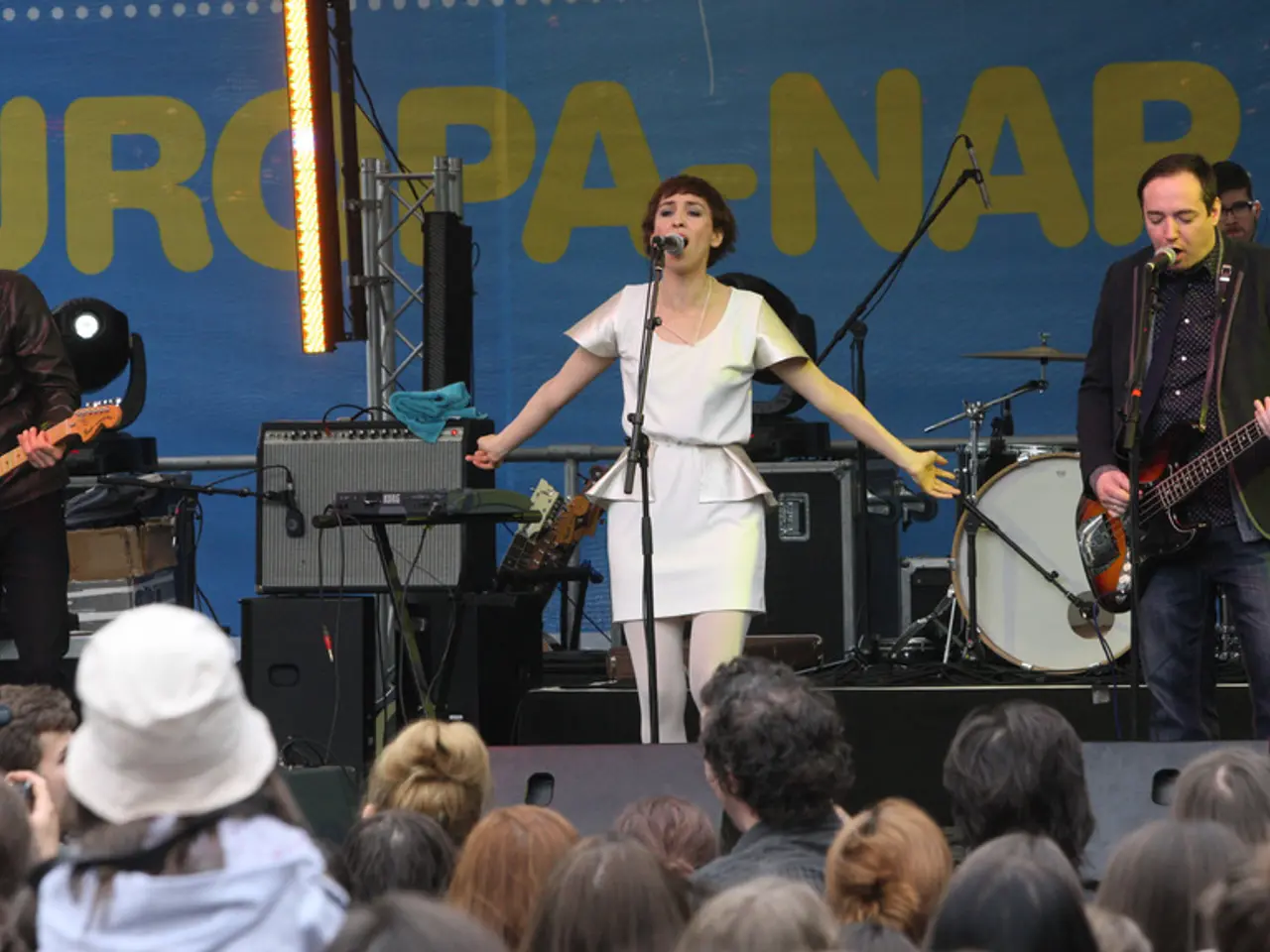"Review of Lilith Fair Documentary: A Look Back at the '90s Festival that Sparked Hope for Women in Rock Music, Potentially Saving the Genre"
In the summer of 1997, the Lilith Fair music festival made its debut, named after Lilith, a figure of ancient myth who was Adam's first wife. The festival, founded by musician Sarah McLachlan, featured mostly female artists and sold-out amphitheaters that were populated mostly by female fans.
The American media was fascinated by the festival, which lasted for three years before coming to a close in 1999. During this time, Lilith Fair served as a platform for numerous female artists to showcase their talent, with some, like Sarah McLachlan and Emmylou Harris, expressing moments of pure joy.
However, the festival was not without its challenges. McLachlan admitted she was too much the people-pleaser to handle a rift that arose during the revival of Lilith Fair in 2010, which was largely regarded as a commercial failure. The same year, another music festival, Woodstock '99, became the poster child for a new wave of misogyny, with Sheryl Crow also performing there.
One low point for Lilith Fair was when the Grammys squeezed three Lilith acts into a single "you go, girl" performance segment. During this performance, Paula Cole exposed unshaved armpits, leading to sexist jokes by comedians like Jay Leno. In contrast, Joan Osborne ignored orders to keep quiet about the issue, decking out her entire band in pro-choice shirts.
Pro-life protesters also picketed festival dates over Planned Parenthood having a booth in the concourse, adding to the festival's tumultuous journey.
Despite these challenges, the festival was a significant milestone in promoting women in music. McLachlan took Paula Cole out on tour as her opening act in 1995, a revolutionary act at the time. Jewel recalled the Indigo Girls as "the greeters of the tour," while Erykah Badu felt uniquely recognized and catered to when she brought her newborn to Lilith Fair.
The documentary briefly mentions McLachlan's failed revival of Lilith Fair in 2010 and suggests that the waning of singer-songwriters as hitmakers and the concurrent rise of female pop superstars could be reasons for Lilith Fair's time passing. However, there is a debate about whether we sorely need a reboot of Lilith Fair, given the current underrepresentation of women in certain genres and sociopolitical culture.
Dan Levy testified that Lilith Fair served as an antidote to rock's growing toxicity for gay men in the audience. The festival was not just a platform for music; it was a space for unity, empowerment, and a challenge to the status quo.
As we look back at Lilith Fair, it is clear that while it faced its share of challenges, it was a groundbreaking event that continues to resonate today. Whether it will make a comeback remains to be seen, but its impact on the music industry and its audience is undeniable.





